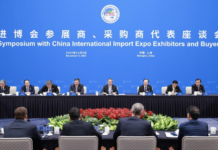KUALA LUMPUR, April 23 — The Ministry of Finance (MOF) said the ringgit has remained competitive, with inflation in check, despite headwinds from global geopolitical tensions and uncertainties.
Malaysia’s strong external position, which includes a healthy current account surplus and a net external creditor position, has significantly improved the country’s ability to withstand such volatility and external shocks, according to the ministry.
“Furthermore, Malaysia’s fundamentals remain robust as indicated by consistent export growth and competitiveness, ample foreign reserves, as well as low inflation trajectory in comparison to peers within the region. All these are expected to cushion further ringgit declines,” the MOF said in a statement today.
The ringgit hit 4.30 to the US dollar on Friday (Apr 22), a level last seen in June 2020.
The ministry noted that the ringgit’s depreciation has tracked the general weakening of major and regional currencies.
“The prospect of a more aggressive monetary tightening by the US Federal Reserve, with a 50-basis point rate hike expected in May, as well as the overall weakening of currencies in the region, are some of the factors that have influenced the recent movement in the ringgit,” it said.
Year to date, the average daily onshore foreign exchange trading volume has been US$12.6 billion, compared to US$11.3 billion in 2021, with 3.9 per cent average volatility (2021 average: 4.6 per cent).
“The flexibility of the ringgit will continue to benefit the Malaysian economy by facilitating appropriate external sector adjustments and cushioning the domestic economy from adverse global shocks,” added MOF.
In terms of inflation, the finance ministry said the price control policies imposed by the government, as well as subsidies allocated for the RON95 petroleum and various food items, will protect the people from any implications of further inflationary pressures.
“Malaysia’s inflation rate this year is expected to be between 2.2 per cent to 3.2 per cent (2021: 2.5 per cent), lower than other countries within ASEAN,” it said, noting that the March 2022 inflation rate was 2.2 per cent, same as February’s.
Moving forward, the ministry said along with Bank Negara Malaysia (BNM), they will continue to monitor both financial and non-financial risks to the economy.
These include the recent geopolitical tensions, as well as how they will affect global supply chains which might lead to higher inflationary pressures and increased volatility in Malaysia’s foreign exchange and financial markets.
“BNM will also contribute to the smooth operation of the domestic foreign exchange market by always ensuring adequate liquidity, to ensure that businesses will be able to plan and execute both trade and investment transactions with greater certainty,” added MOF.
















